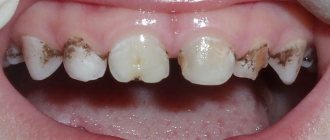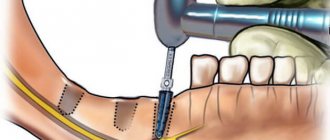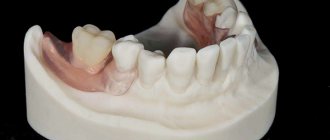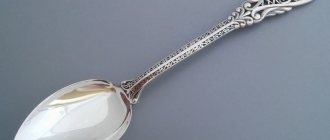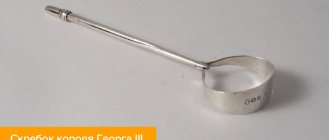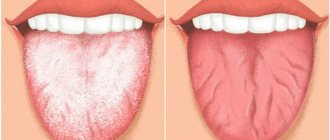In the modern world, people are sometimes ashamed to be superstitious. In their opinion, signs and beliefs that came from the past are stupid and baseless. However, not everything is so simple. Superstitions appeared not as entertainment, but as a way to simplify a person’s life. Therefore, they can be used today in order to get rid of everyday or life problems. Signs and customs regarding the first tooth are no exception to this rule. Many of the long-standing traditions have practical benefits.
What to do with your child's first lost baby tooth?
Parents who are not particularly superstitious keep them as a reminder of their child’s childhood. To do this, you can sew a special bag or buy a beautiful box. In addition, sometimes parents make a special album for the baby, in which they describe the most significant moments in the baby’s life, including the change of teeth. Moreover, they can be put into such an album and stored for many years.
If you are superstitious enough, you can prepare a whole ritual for your child, which the child will definitely remember for the rest of his life. Perhaps your son or daughter, upon becoming adults, will pass on the tradition to their children. So, below you will find the most popular and interesting signs that will help you make the right decision.
Is it possible to store baby teeth?
A few centuries ago, it was believed that storing such things was a bad omen. People believed that witches and sorcerers could secretly steal children's teeth for all sorts of conspiracies and rituals. Nomadic peoples, for example, buried children's teeth, believing that this would not only protect the child from damage, but would also bring him happiness in later life. Today, the view on this issue has changed dramatically.
Lost baby teeth are a real storehouse of stem cells . Instead of throwing away such treasures or storing them aimlessly in a box, they can be donated to a stem cell bank. What are they needed for? Everything is very simple! The fact is that the potential of such stem cells, which are much more powerful than cells taken from the umbilical cord, is several times higher. They can be used for a variety of conditions, ranging from retinal problems to complex fractures.
Thus, storing baby teeth can be of great benefit . If you have this opportunity, why not take it? Despite the fact that the technology for collecting stem cells in this way is quite young, a great future is predicted for it.
Waiting for the Tooth Fairy or When do the first baby teeth fall out?
Many parents are concerned about the question of when should the first baby tooth fall out . Endless questions begin from mothers of the same age, dentists and local pediatricians - when, when?
The issue of changing baby teeth is purely individual. But there is a relationship between the eruption of the first tooth and their subsequent replacement with permanent ones. As a rule, the early appearance of milk teeth foreshadows the corresponding growth of molars. On average, a child will have his or her first permanent incisor in the lower jaw at 5 years of age. Changing teeth is a mechanism for pushing out milk teeth - permanent ones. First, the root of the tooth dissolves, then its upper part begins to wobble and falls out, and a new tooth grows to replace it. The sequence of tooth loss usually coincides with the order of eruption. The change begins with the incisors and so on until the last. The milk bite has 20 teeth. At the age of 12-16 years, all permanent teeth erupt. Sometimes wisdom teeth appear with a delay of several decades, but this is the norm until the age of 30.
So, the long-awaited moment happened, and the first milk tooth left a number of its fellows. What should you do besides calling the Tooth Fairy? After a tooth falls out on its own or is forced to be removed, you should apply a piece of sterile bandage to the resulting hole and bite it for 10-15 minutes. Usually this time is enough to stop minor natural bleeding. When, after 20 minutes, blood still appears, you need to change the bandage and see a pediatric dentist. It may happen that the tooth becomes loose in the late evening. Then it is better to stock up on a pharmacy collection of nettle or sage in advance, make an infusion and cool it. It is dangerous to leave a loose tooth overnight, as involuntary movement of the tongue can cause it to come off, which can cause it to enter the respiratory tract. Therefore, it is important to lose a tooth before going to bed. And if the bleeding does not stop, soak a sterile bandage with herbal infusion and clamp it in the hole. You need to ask the child not to swallow the infusion that has accumulated in the mouth; it is better to spit it out and replace the tampon with a new one. After a day, you can rinse your mouth with soda or a weak saline solution.
Changing baby teeth is always an event not only in the life of a child, but also of the whole family.
Folk traditions and beliefs about baby teeth
Each country has its own signs and superstitions associated with the main event in a child’s life. Sometimes, the customs of peoples are radically different from each other. If your baby has such an important event, you have the right to act in accordance with any traditions.
American traditions
In America there is a belief about a mysterious fairy who flies at night and takes away baby teeth. To do this, they are placed under the pillow, in the hope of finding a long-awaited coin in return. Perhaps this tradition can be considered one of the most famous and widespread.
English traditions
More complex traditions developed among the northern English. There it was believed that a lost tooth must be burned. Firstly, this eliminated the possibility of using it for the purpose of inducing witchcraft and damage, and secondly, they believed that a stronger and healthier one would take the place of the burnt tooth.
Another equally interesting English tradition associated with these things states that a baby tooth must be destroyed in any way so that no animal can swallow it. If this happens, the child will have an ugly smile, or the exact same fangs as those of the animal that swallowed him.
Traditions of Slavic peoples
The Slavs had several interesting signs. Most often, the loss was given to the mouse, which was supposed to take it for itself and bring a new one in its place. They also threw their teeth behind the stove and asked the brownie to take them for themselves.
Gypsy traditions
If a child lost a tooth, they either buried it, reciting special spells, or threw it to the moon. It was believed that in this way one could attract good luck, which would accompany the child throughout his life, protecting him from ill-wishers and various troubles.
Dental traditions in Asia
In Asian countries, there was a funny belief that a new one would grow in place of a lost tooth. At the same time, the fallen upper teeth were thrown onto the roof of the house where the baby lives, the lower ones were hidden under the porch, and the parents repeated a special spell that was supposed to provide the baby with protection from the evil eye.
Drop customs
There are relatively modern beliefs and customs that people practice to this day. These traditions are reflected in both folklore and popular culture. Everyone knows the tradition of putting a tooth under the pillow so that the Tooth Fairy will take it, or the belief that a tooth should be thrown away in a secluded place so that the Mouse will take it and give it a healthy molar in the future.
The main purpose of these superstitions is not to instill in a child the idea of the existence of magic or higher powers. The point is to reduce the pain and discomfort of the baby at a time when his teeth are falling out and new ones are being cut.
A child, captivated by the thought of the unusualness and mystery of what is happening, will forget about the pain. In addition, some children are afraid of parting with a part of their body. For a child, giving a tooth to a kind magical creature is much calmer than throwing it in the trash or burning it.
The mouse waved its tail
The belief about the Mouse, which collects children's teeth, is widespread in Slavic countries, including Russia. For many hundreds of years, parents in Rus' have been telling this fairy tale to their children.
According to superstition, the Mouse took away the lost baby teeth from the child, in return allowing the molars to grow. The main thing in this matter was that the fallen tooth must be thrown over your shoulder behind your back so as not to see where it will fall.
Today people also practice this activity - modern children throw their teeth from balconies or in parks so that they certainly will not find them.
Fairy belief
The Tooth Fairy is widely known in Western countries. She performs approximately the same role as the Mouse - she replaces the baby's milk tooth with a molar, and the child receives some kind of reward. Most often it's just a coin or sweets.
The tradition is so well known that full-length films have even been made about it, which have had considerable box office success.
Traditionally, children are told that the reward for a high-quality and healthy tooth will be greater. In this way, parents encourage their children to take good oral care and take care of their health.
Use as an amulet
In Rus', there was a widespread tradition of using a lost baby tooth to make an amulet for a baby. People were confident that wearing a talisman around the neck would ward off damage, conspiracies, evil spirits and misfortunes from the child. Therefore, the creation of such amulets was actively practiced throughout Rus'.
This custom has become so deeply embedded in Russian culture that in our time in some villages and hamlets people still observe it.
Traditionally, the tooth was placed in a small bag made of red cloth, tied with the same red thread and worn around the neck as a talisman.
Folk signs about baby teeth
- If a child had a gap between his front teeth, they said that he would grow up to be a real joker and a merry fellow, as well as the soul of any company.
- The kids were not allowed to spit out the window. It was believed that in this case the teeth could become very sick.
- If a child was already born with teeth, a great future was predicted for him. Usually they said about boys that they would become great commanders and warriors, and girls would be able to marry extremely successfully.
- When the baby cut his first tooth, he was given a silver spoon, which later became his amulet for life.
- If a child had a gap through which a coin could easily pass, it was believed that such a child would be rich or a successful entrepreneur. In addition, they believed that such a person would lead in all financial matters.
Why give a tooth to a mouse?
Our grandmothers also taught us, when throwing out a milk tooth, to say: “Mouse, mouse, take away the milk tooth, and bring me a new one, bone and durable.” It is very difficult to say now what this sign is connected with. It is believed that the incisors of rodents are very strong, which is why, by giving the loss to a mouse, the baby expects that he will grow the same strong teeth.
In addition, it was the mouse that was addressed, since small rodents were frequent guests in the villages. They lived behind the stoves and under the floorboards. That is why in the village they threw the tooth into the stove or into the cellar so that the mouse could find the treasured gift for sure. It is interesting that the tradition of giving a mouse as a gift existed not only in Russia, but also abroad. For example, in Germany, if such a long-awaited event occurred for a child, mothers told the children to go to the darkest corner of the house and throw the loss there so that the mouse could find it and take it for itself.
It is important to understand that despite traditions and signs, when changing teeth, you need to consult a dentist, who will not only help facilitate this process, but also tell you how to care for the wound in order to avoid the risk of infection.
Changing teeth is undoubtedly a significant and exciting event in the life of the whole family, indicating that your child is becoming an adult. At the same time, you should not suffer from superstitions and signs. Do what you see fit in this situation.
Can I just throw it away?
From the point of view of superstitious people, throwing away a baby's baby teeth is a bad idea. If you do this, they can end up with sorcerers and warlocks. For dark magicians, children's milk teeth are a very valuable material that can be used in rituals to cause damage, curses and the evil eye.
There is a belief that if a discarded baby tooth is found and swallowed by some animal, the child will acquire the features of this animal in his appearance and behavior. He may have enlarged fangs, instead of a smile there will be a predatory grin, he will become aggressive and uncontrollable.
Therefore, it is forbidden to simply throw away baby teeth, because this can lead to negative consequences.
What should you do with a lost tooth if you don’t want to keep it in your apartment? If the Fairy “took” it, you can bury the tooth in a secluded place. If a child wants to “give” it to the Mouse, he throws it out in the park or in the field.
Most modern mothers do not believe in omens about baby teeth. But you shouldn’t refuse the “help” of the Tooth Fairy or Mouse, who will take the tooth for themselves. These cute traditions will bring a little magic into your baby’s life, calm you down and teach you how to better care for your teeth.

